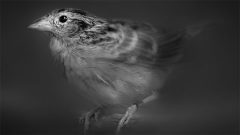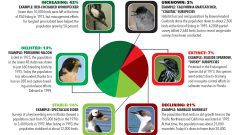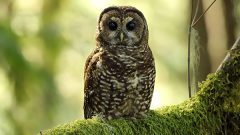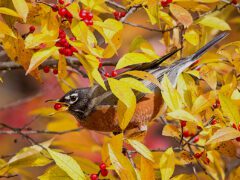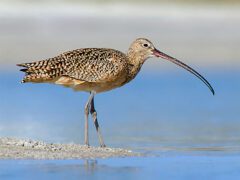A hefty sparrow with a very large, long, pointed bill and a long, rounded tail, long legs, and short, rounded wings.
Relative Size
Slightly larger than a Savannah Sparrow, slightly smaller than a White-throated Sparrow.

 sparrow-sized or smaller
sparrow-sized or smallerMeasurements- Both Sexes
- Length: 5.1-5.9 in (13-15 cm)
- Weight: 0.7-1.0 oz (19-29 g)
- Wingspan: 7.1-7.9 in (18-20 cm)
- Length: 5.1-5.9 in (13-15 cm)
- Weight: 0.7-1.0 oz (19-29 g)
- Wingspan: 7.1-7.9 in (18-20 cm)













































